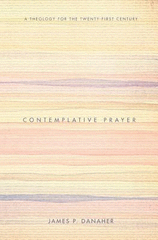The words of Fr. Richard Rohr have very often been used by the Holy Spirit to work deep grace and peace into my soul. Rohr is clearly not everyone’s cup of tea, that much I can tell you with real assurance. I would not have personally been interested in his writing as recently as ten years ago. There are a number of reasons for this but most of them have more to do with my small mindedness than with Richard Rohr’s profoundly rich and helpful ideas. (Rohr will most likely offend very conservative Christians, both Catholic and Protestant, so be forewarned. Some suggest that he is not orthodox but the evidence for such a dire response has never been very convincing to me.) I plan to attend a retreat/conference with Fr. Rohr in late April in New Mexico, where his Center for Action and Contemplation is located. I am looking forward to hearing him in person and meeting him face-to-face.

Recently Richard Rohr posts a “Daily Meditation.” A recent one caught my attention with the title: “Bias From the Bottom.” I was struck by the title, but even more by the utter simplicity and challenge of his clear thinking. Here is part of what he said:
We see in the Gospels that it’s the lame, the poor, the blind, the prostitutes, the drunkards, the tax collectors, the sinners, the outsiders, the foreigners who tend to follow Jesus. It is those on the inside and the top who crucify him (elders, chief priests, teachers of the Law, scribes, and Roman occupiers). Shouldn’t that tell us something really important about perspective? Every viewpoint is a view from a point, and we need to critique our own perspective if we are to see and do the full truth.
Well, yes this is quite true. Every view point is a, in fact, “a view from a point.” You have one and so do I. What often distinguishes us is precisely this view point, not so much our point of view. If our view point begins with Jesus, as He is revealed to us by the Spirit through the Gospels in particular, we arrive at a point of view privileged by Jesus, not one first formed through our particular social, educational, denominational or ethnic perspective.
Rohr goes on to say that we “fail to appreciate liberation theology” because for 1,700 we have been:
Interpreting the Scriptures from the perspective of the empowered clergy class, rather than from the perspective of the marginalized who first received the message with such excitement.” When Christianity became the favored and privileged faith of the Emperor, and of course the Roman Empire, it largely “stopped reading the Bible from the side of the poor and the oppressed.
Does this observation mean that I must become a “Liberation Theologian,” or a socialist/Marxist/Communist? Anything but. Such categories are as flawed as other statist ideologies that seek to empower human governments to replace the church, or to become a willing partner with it. This is one of the major points that I’ve made in my posts this week about the political nature of the church in the world. To conceive of the church in terms of a radical “liberation theology” is to exchange one really bad category mistake for another. But I believe this misses Rohr’s central point.
What Rohr wants you and me to do is to “see” how the various powers of the political and religious establishment keep us codependent on their ministrations to receive truth and follow Jesus faithfully in the world. So Rohr concludes, “No wonder Jesus said, ‘I did not come for the healthy but for the sick’ (Mark 2:17). This priority has the power to constantly detach religion from its common marriage to power, money and self-importance.”
You know what – I could write my own story using this very view point to get from my past to my present point of view. I am a sinner. I need a Savior. I am most definitely not that Savior. Jesus is. I am determined to continually embrace heart and mind perspectives that allow me to trust him alone to save me. That is true liberty and for that Christ died to save us and to set you and me free. Amen.
Related Posts
Comments
Comments are closed.
My Latest Book!

Use Promo code UNITY for 40% discount!







Melvin Flikkema liked this on Facebook.
Marcus Ames liked this on Facebook.
Garry Trammell liked this on Facebook.
Roger LeBlanc liked this on Facebook.
Dan Brennan liked this on Facebook.
The Naked Now might be a good starting point.
Great post, John. I, too, find Fr. Rohr to be right on in reminding us of how much personal context (economic, political, “confessional,” etc) becomes a lens for hearing (and living!) the Word.
Hi John,
I read Fr. Rohr’s daily meditations and I have read several of his books. Overall, I benefit spiritually from what he writes, though sometimes he leaves me confused and unsure where he’s coming from. It could be due to my own “small-mindedness” as well. I find if I balance him with a good dose of something written by Pope Benedict XVI when he was Joseph Ratzinger, I seem to get more understanding overall.
God bless!
Dear John,
Thank you for once again “putting in to words” that which I could faintly sense or see
and was hesitant to explore further without a trusted guide.
I had resisted Richard Rohr for several years but took a second look after you started
commenting on his work. The most ‘highlighted’ book in my library is “The Naked Now”. I concur with Nick Morgan’s thoughts and proceed with caution, but my life
is richer for having considered and incorporated many of Father Rohr’s insights into
my way of thinking and praying.
Thank you for introducing me to James P. Danaher; I’m interested in how he approaches contemplative prayer in his book.
May Grace and Peace be multiplied to you,
_R. Schnetz